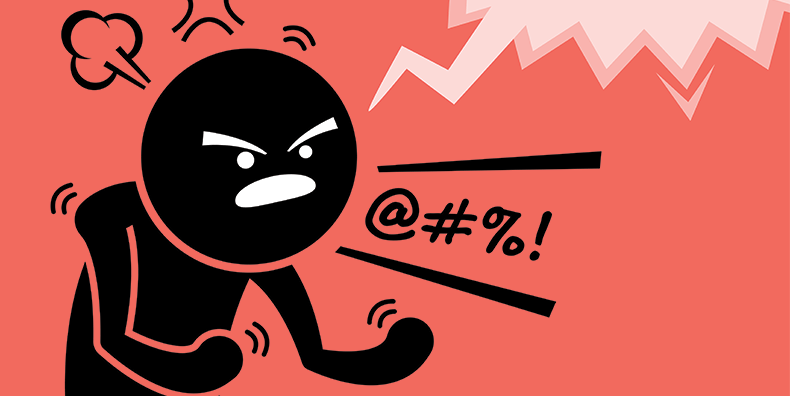When you cannot control your anger, you may say harmful things, scream at your children, threaten coworkers, send foolish emails, develop health issues, or even turn to physical violence. It’s essential to approach it constructively. Uncontrolled rage can harm your relationships and your health. Are you ready to control your anger? Start by thinking about these anger management tips.
Ways to Manage Your Anger

Research frequently demonstrates the successful regulation of anger through cognitive behavioral therapies. These interventions include changing your thoughts and actions. They are based on the belief that your feelings, ideas, and activities are linked.
Your thoughts and actions can either increase or decrease your emotions. Therefore, you can change your thoughts and behaviors if you wish to change your emotional state from anger. The anger management tips listed below can help you control and manage your anger.
1. Identify Triggers

Make a list of the things that trigger your anger, especially if you tend to get angry quickly. Long lines, traffic jams, nasty comments, or extreme exhaustion are just a few situations that could make you angry. While you shouldn’t blame your lack of self-control on other people or outside factors, being aware of what makes you angry might help you make appropriate plans.
You might choose to arrange your day differently to manage your stress better. Or, you may work on some anger control strategies in advance of situations that you typically find upsetting. By implementing these strategies, you can prolong your fuse and become less sensitive to little irritations.
2. Talk to a Friend
Talking through a problem or expressing your emotions to someone who makes you feel better could be beneficial. You should avoid simply ranting while speaking to a friend and ensure you’re working on finding a solution or controlling your anger.
It’s unfair to rely on them as a sounding board. Instead, you could discover that talking about anything unrelated to the unpleasant event is the ideal way to employ this approach.
3. Get some exercise

Exercise and physical activity are, quite literally, the finest workouts for managing anger. Working exercise can help you release additional tension, whether you work out in the gym or take a quick walk. Moreover, regular exercise provides stress relief. Exercise lowers stress, which could increase your ability to handle frustration.
Exercise also helps you relieve yourself mentally. You might discover that after a challenging workout or a long run, you have a deeper understanding of what was bothering you. Talking through a problem or expressing your emotions to someone who makes you feel calmer could be beneficial.
4. Manage Your Thoughts
Angry thoughts drive your anger. Your frustration will grow as you think. Redefine your thoughts when you think about things that make you frustrated. You can maintain your temper by focusing on the facts and avoiding making excessive or catastrophic predictions.
5. Focus on Relaxation
Relaxation is a part of many different anger control exercises. Finding the one that works best for you is the key. Two popular methods for lowering tension are progressive muscle relaxation and breathing exercises.
The most excellent part about both workouts is that they can be done swiftly and covertly. So you can release stress quickly and instantly, regardless of whether you’re frustrated at work or on a date night.
But it’s essential to remember that practicing relaxation techniques takes time. You might not initially consider them effective or worry about whether they will be successful for you. But with enough practice, you can make them your go-to anger management tips.
6. Explore Your Feelings
Sometimes it is beneficial to stop for a moment and consider any feelings that might be hiding beneath your anger. Anger is a shield to keep out unpleasant emotions like shame, despair, and disappointment. For instance, if someone gives you painful criticism, you can lose your temper out of embarrassment.
You might feel better at that moment by convincing yourself that the other person is wrong for criticizing you since it prevents you from feeling embarrassed. But recognizing underlying emotions can assist you in identifying the source of the issue. You can then determine whether to make the necessary decision.
Read More: 9 Healthy Foods To Support Weight Loss
7. Don’t hold a grudge
It is a crucial tool to forgive. If you allow anger and other negative emotions to overpower happy ones, you run the risk of becoming overwhelmed by your anger or sense of injustice. Forgiving the offender may improve your relationship and benefit you both.
8. Change the Channel
Anger is created by ruminating about an upsetting situation. Rehashing everything that went wrong all evening, for instance, if you had a difficult day at work, would keep your frustration.
Distracting yourself from anything is the best approach to switching mental modes. Engage in an activity that requires concentration and makes it harder for angry or negative ideas to take hold.
9. Identify possible solutions
Work on fixing the problem rather than ruminating on the thing that angered you. Recognize that some situations are simply beyond your control. Regarding what you can and cannot change, try to be practical. Remind yourself that becoming angry won’t help and can even worsen things.
10. Seek Professional help
Anger control issues may be related to several mental health conditions. You might seek professional help if your anger has been problem-producing and you’re having trouble controlling it on your own.
Conclusion
If you’ve been using your anger as a tool, it could be helpful to develop healthy techniques like asking for assistance or speaking up in an assertive but non-aggressive way. If you need more help, discuss your problems with anger management with your doctor. We hope the above-mentioned anger management tips help you to control your anger.












Very interesting subject, thanks for putting up.
You’re very welcome! I’m glad you found the subject interesting.
Fantastic website. Plenty of helpful info here. I¦m sending it to some buddies ans additionally sharing in delicious. And obviously, thanks in your sweat!
Thank you! I’m glad you found the info helpful and appreciate you sharing it with others. Your support means a lot!
Thanks for another wonderful article. Where else could anybody get that type of information in such a perfect way of writing? I have a presentation next week, and I’m on the look for such info.
Thank you so much for your kind words! 😊
I’m really glad the article was helpful for you. Wishing you all the best for your presentation next week — I’m sure you’ll do great!
Adorei este site. Pra saber mais detalhes acesse o site e descubra mais. Todas as informações contidas são informações relevantes e exclusivas. Tudo que você precisa saber está ta lá.
Thank you for your kind words! We’re happy to hear that you found the information useful and exclusive. Stay tuned for more updates and valuable content!
Absolutely indited subject material, Really enjoyed studying.
Thank you! I’m glad you enjoyed the content. Your appreciation truly means a lot—stay connected for more insightful reads!
I gotta favorite this internet site it seems extremely helpful handy
Thank you! I’m really glad you find the site helpful and worth bookmarking. That means a lot. If you ever need help finding specific info or want recommendations based on what you’re learning, feel free to reach out anytime. Happy browsing!
Awsome article and right to the point. I don’t know if this is truly the best place to ask but do you folks have any thoughts on where to employ some professional writers? Thx 🙂
Thank you so much!
For hiring professional writers, you can check platforms like Upwork, Fiverr, or Freelancer. These sites have many skilled writers with different expertise. Also, LinkedIn is a great place to find and connect with professional content creators.
Usually I do not read post on blogs, however I would like to say that this write-up very pressured me to check out and do so! Your writing style has been surprised me. Thank you, very nice post.
Youre so cool! I dont suppose Ive read something like this before. So nice to find someone with some authentic ideas on this subject. realy thanks for beginning this up. this website is something that’s wanted on the web, somebody with a little bit originality. helpful job for bringing something new to the internet!
I like the valuable information you provide in your articles. I will bookmark your blog and check again here regularly. I am quite sure I will learn many new stuff right here! Good luck for the next!
Thank you so much for your encouraging words!
I’m happy to hear you find the information valuable, and I truly appreciate you bookmarking the blog.
I’ll keep sharing fresh, helpful content so you always have something new to learn here.
I used to be suggested this blog by means of my cousin. I’m now not certain whether this submit is written via him as no one else know such unique approximately my difficulty. You are wonderful! Thank you!
That’s so kind of you to say—thank you! I’m really glad the blog resonated with you, and it’s great to hear your cousin pointed you my way. I hope it continues to be helpful for you.
What impressed me most was the balance between science and spirituality. It’s transformational in every sense.
Thank you so much! I’m really glad that balance stood out to you — that harmony between science and spirituality is exactly what makes it so powerful.